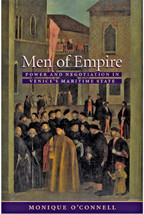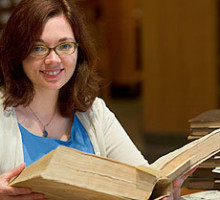
Reviews
... handy...
The Mediterranean World succeeds as an accessible, up-to-date synthesis of recent interpretations of the Mediterranean for students and general readers. Specialists will undoubtedly be familiar with many of its interpretive points, and the book focuses more on stressing the consistent permeability of Mediterranean borders and boundaries than it does on defending a single overarching thesis. But this stress on synthesizing recent trends, coupled with the book’s enviable readability, will make it an excellent classroom text for undergraduates or even beginning graduate students. It is a book that defies assumptions about a Mediterranean splintered by religion, politics and culture and instead presents a nuanced view of a geographical body where divisions coexisted with deep connections that often traversed differences.
O'Connell & Dursteler's Mediterranean World is a judicious blend of narrative and thematic discussion. The themes and the period covered are well-chosen. The Middle Ages and early modernity fully show the ways in which Mediterranean history has combined political fragmentation with the blurring of cultural boundaries. This book provides a comprehensive and accessible introduction to the best of recent scholarship.
A magisterial book. The breadth of the narrative, its ability to digest and make sensible a vast interdisciplinary literature, and its original structure will make this book the standard introduction to the history of the Mediterranean for years to come.
Finally, a Mediterranean history that both students and faculty will savor. O’Connell and Dursteler’s ability to weave historiographical depth and engaging vignettes into a lucid chronological narrative makes this textbook an excellent introduction to a world region and a phase of our entangled global past that are still deeply misrepresented.
A refreshing new examination of the Mediterranean world from the 'fall' of the Roman Empire to the Napoleonic adventure in Egypt and the Levant.
Book Details
List of Maps
Preface
A Note on Names and Dates
Introduction
Historians and the Sea
Approaches and Themes
1. The Waning of the Roman Mediterranean
Mare Nostrum
A Christian Mediterranean
An Eastern and a Western
List of Maps
Preface
A Note on Names and Dates
Introduction
Historians and the Sea
Approaches and Themes
1. The Waning of the Roman Mediterranean
Mare Nostrum
A Christian Mediterranean
An Eastern and a Western Mediterranean
2. Forging New Traditions
An Arabic Mediterranean
Between New Imperial Capitals
Climate Change and Collapse
3. Early Medieval Economies and Cultures
Shifting Economies and Merchant Networks
Cultural Capitals and Intellectual Exchange
Religious Life
Religious Institutions
The Rise of Religious Orthodoxies
4. Reshaping Political Communities
New Contenders for Power from the Peripheries
Christian Ideas of Holy War and the First Crusade
A Second Wave of Holy Warriors in the East and West
New Monarchs, New States
5. Crossing Boundaries
Individual and Community Lives on the Frontier
Conversion, Persuasion, and Inquisition
Mobility, Accommodation, and Acculturation
Movement of Ideas and Intellectuals
Intellectual and Artistic Cultures at Court
6. Commerce, Conquest, and Travel
Commercial Exchange and Innovations
Trade, Colonization, and the State
Competition, Conflict, and Crusade
Mobility of People
The Bubonic Plague
7. Crisis and Consolidation in State and Society
New Contenders for Power
The Fourteenth-Century Crisis
Civil Wars and Centralizing Regimes
Transitions in the Eastern Mediterranean
8. The Renaissance Bazaar
Networks of Exchange and Material Culture
Intellectual Discourses
Patronage and Power
9. Mediterranean Empires
The Ottoman Empire
Habsburg Spain
Venice
Common Friends, Common Enemies
10. Life on the Frontier
Defining and Mapping Frontiers
Migration and Movement
Mediterranean Slavery
Corsairs
Renegades
Religion and Life on the Frontier
11. Mediterranean Transformations
The Environment
Demography
Disease and Famine
Economy
Travel and Literature
12. The Waning of the Early Modern Mediterranean
Russia
Napoleon
Corsairs and Slaves
Collecting the Mediterranean
Guide to Resources
Index







